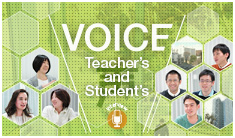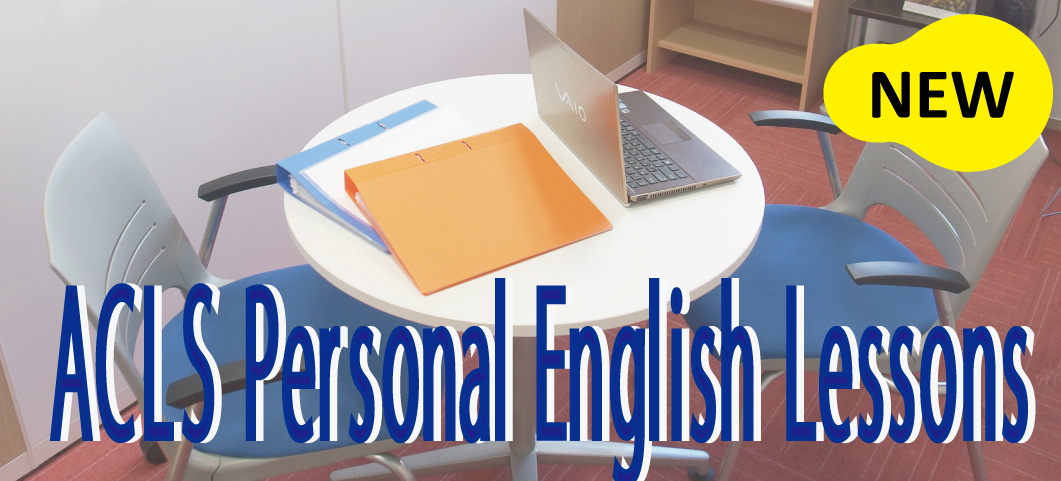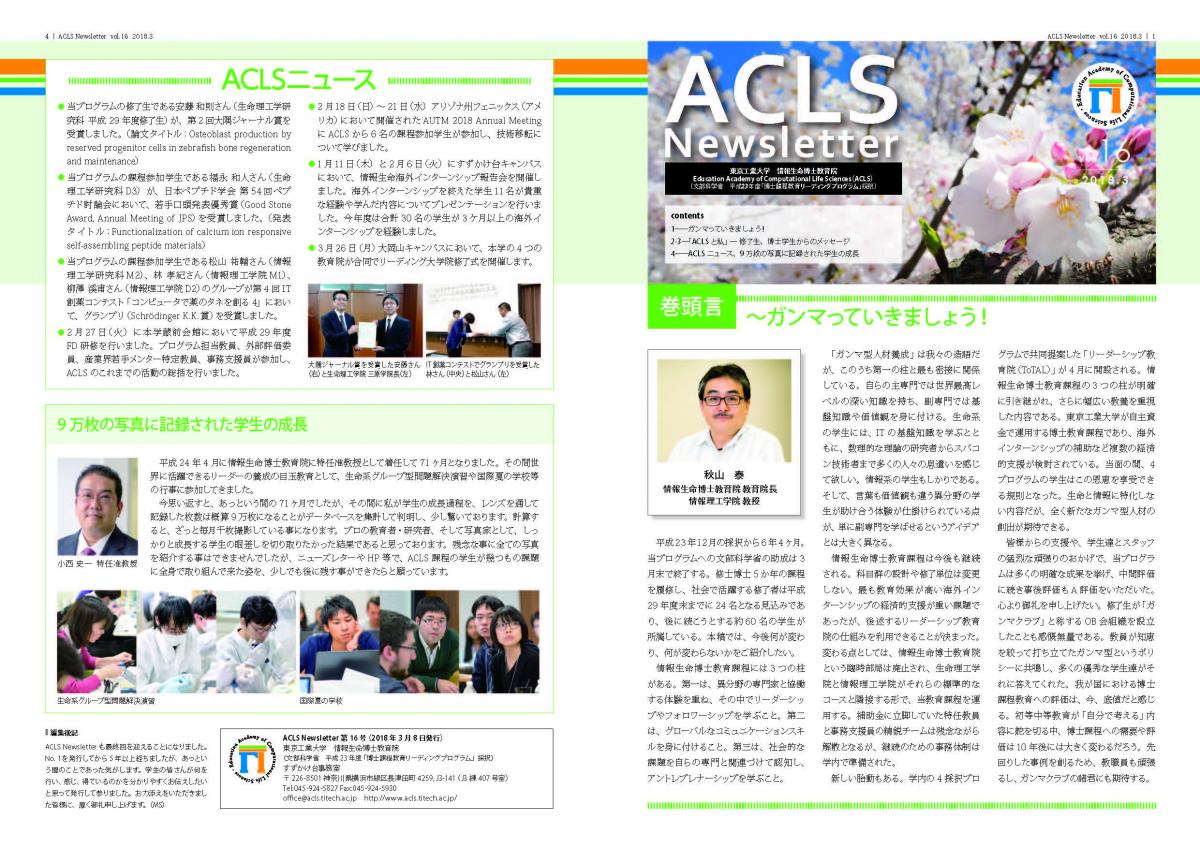- Home
- Teacher's and Student's voice
- Esquivel Chavez Alfredo / Dashdemberel Batchunag
Esquivel Chavez Alfredo / Dashdemberel Batchunag


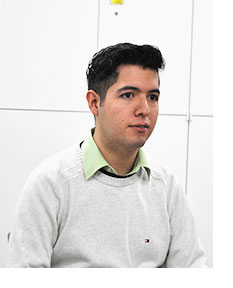 Alfredo: I learned of ACLS from my advisor Professor Iwasaki, who described ACLS as a leading program in Japan. Professor Iwasaki showed me the website, and I was interested in the idea of concurrent study in the fields of life science and computer science. It was then that I decided to participate.
Alfredo: I learned of ACLS from my advisor Professor Iwasaki, who described ACLS as a leading program in Japan. Professor Iwasaki showed me the website, and I was interested in the idea of concurrent study in the fields of life science and computer science. It was then that I decided to participate.
Personally, I conduct research in the field of life sciences. My major research theme is DNA repair. Specifically, I investigate how DNA and proteins are related to this process, and the exchanges which take place. I often use computers to perform calculations when conducting my research, so I require knowledge in computer science. The advancement of computers has increased the possibility of new discoveries in my field of expertise. Therefore, I thought it would be a great opportunity to study computer science knowledge and processes at ACLS.
Batchunag:After graduating high school in Mongolia, I came to Japan and enrolled at the Tokyo Institute of Technology. My specialty is computer science and I mainly conduct research on algorithms. I first learned of ACLS when I was in my third year of undergraduate school.
Actually, I have been interested in DNA and other life science topics ever since I was in high school. I was interested in studying life science after graduating from high school. However, upon entering university, I focused on studying for my major and didn't have the time to learn about life sciences.
I saw ACLS as a chance to study life science, a field which has always interested me, while also continuing my own research. With this goal in mind, I have participated in ACLS since last April when I enrolled in the Master's program after graduating from undergraduate school.

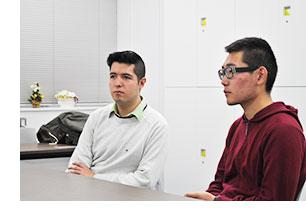 Alfredo:I studied Japanese language and culture before coming to Japan, so I didn't experience any shock upon arriving in Japan. I already knew that ACLS is conducted in either English or Japanese, so I never felt any real uneasiness when I decided to participate in the program.
Alfredo:I studied Japanese language and culture before coming to Japan, so I didn't experience any shock upon arriving in Japan. I already knew that ACLS is conducted in either English or Japanese, so I never felt any real uneasiness when I decided to participate in the program.
Upon actually participating in the program, there were some classes taught entirely in Japanese. Without a doubt, I found it difficult at first. However, I was determined to overcome that difficulty through personal effort. I study hard by understanding themes, searching for explanations and reading any necessary materials. I also take advantage of TAs (teaching assistants) and other resources provided by ACLS. As a result, I don't have any problem participating in the program.
Batchunag:I had been in Japan before participating in ACLS, so I wasn't worried about the program. Actually, when I first came to Japan in order to enroll at the Tokyo Institute of Technology, I didn't understand any Japanese. Nevertheless, I didn't feel uneasiness when moving to Japan. I was focused on enjoying my lifestyle in a new country.
However, kanji (Chinese characters) proved to be a major obstacle once I enrolled at university. There are no kanji in the Mongolian language, so it was a completely new system of writing for me. Since my major is computational science, I didn't have many chances to remember kanji through actual writing practice. I would often forget kanji when I tried to write something, and I had trouble with classes and test in which I had to use kanji.
On the other hand, ACLS has many foreign instructors and students. As a result, there are fewer language barriers when compared to undergraduate school.

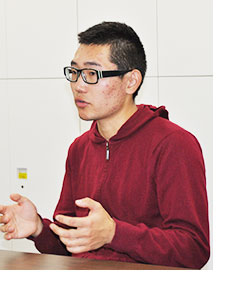 Batchunag:ACLS offers an environment for studying in English. The majority of classes required to finish the course are taught in English. Although Japanese is the main language used, all of the instructors are able to converse in English.
Batchunag:ACLS offers an environment for studying in English. The majority of classes required to finish the course are taught in English. Although Japanese is the main language used, all of the instructors are able to converse in English.
Although the course "Creative Collaboration Works I" was conducted in Japanese, there was always a TA who was responsible for giving follow-up assistance to foreign students. Furthermore, since these exercises were conducted as a group, students would always help each with difficult aspects after class. I was a member of a four-person group with two Japanese students and two foreign students. We all spoke English, so I was able to keep pace with the exercises.
Alfredo:Many foreign students participated in "Creative Collaboration Works I." Every week, the instructor would gather foreign students together about an hour before the exercises and give a briefing on the upcoming lecture. Thanks to such consideration, we were able to grasp the background behind lectures, which really aided our understanding.
Outside of classes and exercises, emails from the office were written in both Japanese and English. Everyone understands English, so I was able to received detailed explanations for any matters which I did not understand in Japanese. Moreover, I was encouraged to ask any questions which I might have. This support enabled me to smoothly pursue my studies at ACLS.

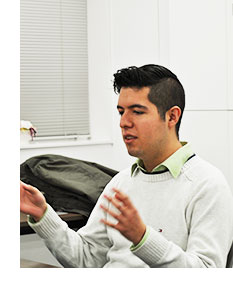 Alfredo:The greatest appeal of ACLS was the opportunity to interact and communicate with a variety of people. In addition to simply communicating with students from different fields of expertise, I cooperated with people from different countries. It was an outstanding opportunity.
Alfredo:The greatest appeal of ACLS was the opportunity to interact and communicate with a variety of people. In addition to simply communicating with students from different fields of expertise, I cooperated with people from different countries. It was an outstanding opportunity.
When working on a single theme, it is important to understand the ideas and actions of each person involved. For example, when working on assignments with other students, I realized that methods and ways of thinking differ depending on one's native country or field of expertise. It was very meaningful to directly experience such differences.
Batchunag:As I stated earlier, I have always been interested in life sciences. Although my interest would have continued regardless of whether or not I entered ACLS, I was greatly influenced by the ACLS idea of becoming a "Γ (gamma) type specialist" (see Note 1 below). Instead of simply acquiring knowledge, I am striving to become a gamma-type specialist by understanding concepts applying to both computer science and life science, and by working as a team with people from different backgrounds.
Alfredo:Some people may say that it is difficult for students specializing in different fields to study together. However, I believe the opposite is true. By teaching each other difficult points, I got practical experience in how to give easy-to-understand explanations to experts from other fields. This is an outstanding aspect of ACLS.
Batchunag:Of course, there is much to be learned from highly experienced instructors. At the same time, much can be gained through cooperative study with students from other fields. New solutions are discovered when explaining your field of expertise to another person and being taught about other specialized fields. The merit of ACLS is that it provides just such an opportunity.
Note 1:A "Γ (gamma) type specialist" possesses thorough practical knowledge in their specialty area along with relevant knowledge and experience in their secondary specialty area.

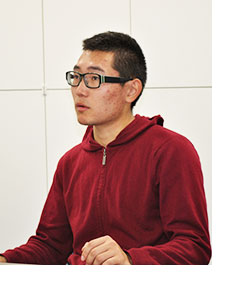 Batchunag:The ACLS program gave me experience in working together with people from different fields. I want to utilize this experience to become a Γ (gamma) type specialist or a Π (pi) type specialist (see Note 2 below). Instead of studying or researching alone, I want to cooperate with other researchers or coworkers to produce results by moving in the same direction.
Batchunag:The ACLS program gave me experience in working together with people from different fields. I want to utilize this experience to become a Γ (gamma) type specialist or a Π (pi) type specialist (see Note 2 below). Instead of studying or researching alone, I want to cooperate with other researchers or coworkers to produce results by moving in the same direction.
Alfredo:To be honest, participating in ACLS has caused me to question my future path in life! Prior to entering the program, I had a clear vision of getting my Master's degree, getting my PhD, becoming a researcher and finding employment at a pharmaceutical company. However, enrolling in ACLS gave me the opportunity to meet many different people and participate in projects such as overseas internships. This made me realize that there is more than one path in life. Today, I am considering which of my many options to choose.
Batchunag:I think that ACLS is the perfect place for people searching for their life work, for people seeking a path after graduation. I believe that participating in ACLS helps students find the path which is best for them as individuals. Even in the case of people who have already decided upon a career, the ACLS program can open up new possibilities.
Alfredo:When looking only at the requirements for completing the program, ACLS may seem difficult to some people. However, upon actually participating in ACLS, I now feel that there is great merit in overcoming these requirements. Give your full effort and do your best—you will undoubtedly be rewarded with great result. ACLS may seem difficult, but it offers so much to those who persevere.
Note 2:A "Π (pi) type specialist" has developed deep expertise in two fields.
※The contents of this article are accurate as of the time the interview was conducted in January 2015.






